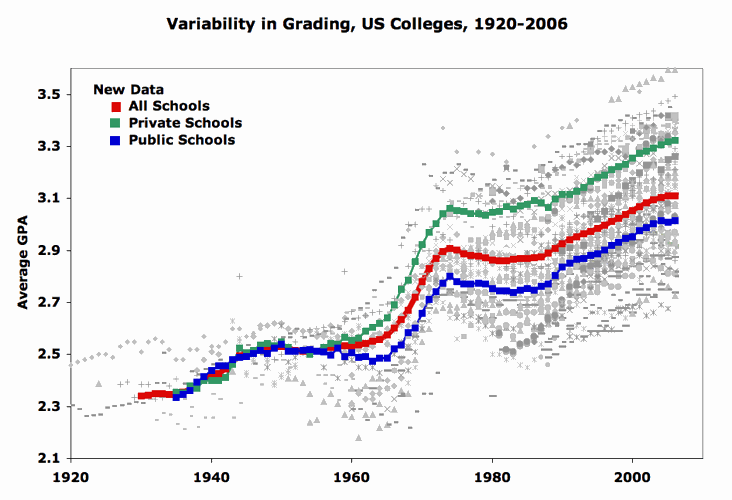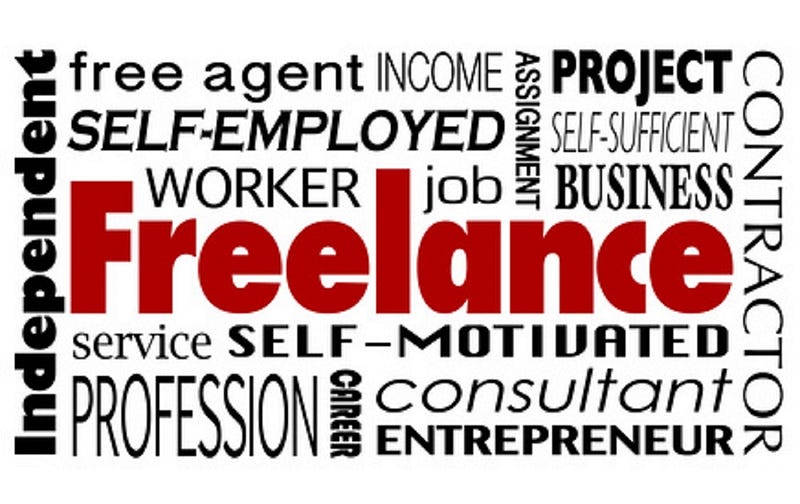We're living in an epic period of change, danger, wealth creation, science, technology, and opportunity. In 2008, the old economy was reshuffled and the cards re-dealt, with new winners in this 'New Era', and, regrettably, a lot of losers. So the question is, ‘How do I not become a loser?’
The answer is here, or at least I hope. This is the field guide to the 'New Era' we live in. You can play by the old rules and get left behind, or you can use these new ideas and gain understanding. This is not for the faint of heart. Read at your own risk, because sometimes the truth is hard to take.
1. The ‘American Dream’ is being redefined

James Altucher proclaims the American dream is dead. However, maybe it’s merely being redefined. We all have varying ‘dreams’ attainable within our cognitive and economic capacities.
In the past, home ownership as embodied by ‘the white picket fence’ was a defining characteristic of the ‘American Dream’. But, especially since 2008, the rate of home ownership has plunged:

Millennials are living with their parents longer, getting married later, and delaying home and family formation. Part of this is economic, some sociological – all examples of how American society and its values are changing.
2. You need to learn to lower your expectations

Related to the point above, many young people in the 90’s during the ‘self esteem movement’ were deluded into believing they could become or achieve anything, but we all have our limitations – some biological in terms of qualities like IQ, some economic such as parental income. Understanding your strengths and weaknesses can help you attain an outcome that, while maybe not meeting your loftiest of expectations, can still bring some degree happiness and fulfillment.
As many millennials can attest, the economy has also become increasingly competitive, with job prospects more scarce. While you can’t change this, understanding that it’s not entirely your fault may bring piece of mind.
3. Your IQ does matter

You may notice I mention ‘IQ’ and ‘intelligence’ on this list. Well, as it turns out, IQ is important, and not merely just a number as some may incorrectly assume. IQ is a surprisingly reliable predictor for all sorts of things: income, learning ability, educational attainment, creative output, and more. Furthermore, IQ is highly heredible and stable throughout life. Thus, smart people may have more options than less intelligent people, but that’s the way the cookie crumbles, as unfair as it may seem.
Related to #2, by testing and knowing your IQ, you can set realistic expectations, not wishful ones. Maybe this seems harsh, ‘Why should I be defined by a number?’ Well, don’t blame me…take it up with the data. For example, if you know your IQ is less than 110, maybe you should not go to college and instead learn a trade.
4. Your college degree is probably worthless
High school and college degrees have become the equivalent of participation trophies, albeit very expensive ones. Did you think it was a good idea to major in gender studies or psychology because you thought any degree would be ‘good enough’? You were wrong. Maybe in the ‘pre-2008’ era, your liberal arts degree would have packed more mileage, but not anymore. Why? Grade inflation, rending GPAs (both high school and college) nearly worthless, and, second, an oversupply of liberal arts degree holders relative to the demand.

Since 2008 or so, companies have been in permanent cost-cutting mode, even as profits & earnings have soared to record highs. This means employers only want the best and the brightest, even for the most mundane of jobs, while outsourcing or temping the rest. Unless your degree stands out (for example, from an Ivy League institution), you will have little hope of differentiating yourself from your competition who also have worthless degrees and are also applying for that job.
And, most importantly, a STEM degree pays more:

If you are going to spend $100k on a 4-year degree, why not choose a major where you will have a reasonable likelihood of earning it back? Unfortunately, it’s too late for many millennials, and , second, STEM is hard – and that’s where IQ comes into plays.
Unless you’re David McCullough, why should an employer pay a history major $60,000 a year when that information can be found on Wikipedia for free? Engineering, on the other hand, cannot be as readily outsourced.
5. Your job prospects suck (although you probably already knew that)
During a national hiring day, McDonald’s hired only 62,000 applicants out of a million applicants, an acceptance rate of 6.20%, which is the same as Harvard!

The youth unemployment rate is 12% vs. 5% for the general population.
44% of millennial college graduates are in low-wage jobs.
40% of the unemployed are millennials.
6. You are paid for the economic value you create

Assuming you’re lucky enough get a job, unless your degree is directly applicable for the job, your employer does not care what you majored in; he cares only about how much economic value you can produce for him.
Instead of asking yourself, ‘how can I get paid’, ask yourself ‘how can I create economic value?’
That’s why many millennials with ‘worthless’ degrees find themselves holding jobs that are not commensurate with their educational attainment – even six years since the recession ended, and I don’t see this trend changing.
7. ‘Good enough’ isn’t enough

That’s why the gig and freelancer economy (Uber, Task Rabbit) is booming , as part off the post-2008 trend of increasing efficiency and productivity. In the gig economy , workers are directly accountable for their success or failure, whereas in corporate America delegating and back-slapping are more valued. Thus, is it any surprise corporate America is downsizing? All too many employees who were just ‘coasting by’, producing 70% effort, were in for a harsh reality in 2008 when employers began to ask, ‘Why are we paying all these people to just sit around?’ and the pink slips began to roll.
In an era where Average Is Over, you must be exceptional, to not only stand out- but to merely get hired. What are you doing to differentiate yourself from the other 1 million people applying?
8. You were coddled

Your parents, teachers, the media, coaches, and clergy lied to you. No, you're not special. Quantifiable results matter. People are 'special' for their accomplishments and the economic value they produce – existence in and of itself is not a virtue. Incentives matter, not 'good' intentions (increasing unemployment benefits discourages working, for example). And stop complaining about the student loans that you under your own volition took out, although I have some empathy for those who majored in respectable fields but are unable to find adequate work due to the perpetually anemic labor market. If you majored in, say, gender-queer studies or child development, that's your fault.
9. Appearance matters

In his book Advice for a Happy Life renowned sociologist Charles Murray dispenses his wisdom to young people. One key piece of advice is, how you present yourself matters. Wearing immodest clothing, dyed hair, visible tattoos, or piercings screams to employers ‘Don’t hire me!’ Unlike IQ or your degree, this is easy to fix.
10. Being offended is not assault

Trigger warnings, micro aggressions, and campus protests were in the news in 2014 and 2015, with easily offended students, for example in the 2015 University of Missouri protests, playing the ‘victim card’. Disagreement is not assault. Being offended is not an attack. This false victimization, while tolerated by colleges (after all, as long as the checks are being written, who cares), will not fly in the real world.
